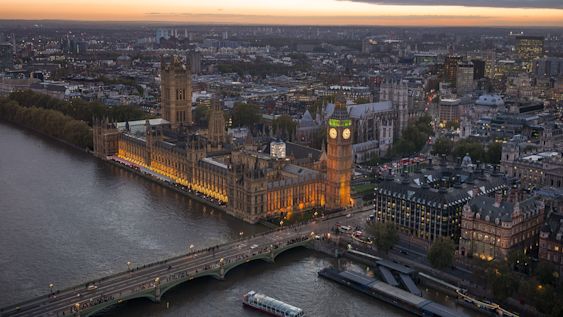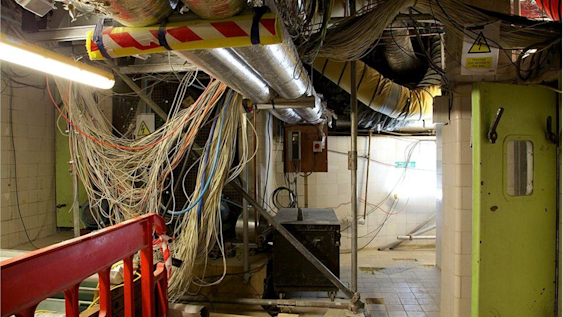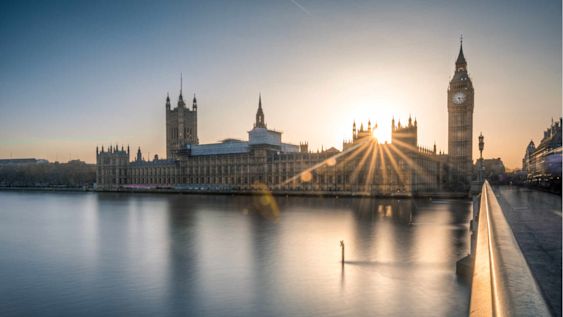
In it for the long haul: HGV driver shortage Statutory Instruments show scrutiny system shortcomings
Statutory Instruments (SIs) have been a key tool in the government’s response to shortages of heavy goods vehicle (HGV) drivers. These SIs showcase the usefulness of this type of law-making but also highlight again some of the longstanding problems with its parliamentary scrutiny.
The UK has been experiencing a tangible shortage of heavy goods vehicle (HGV) drivers for some time, exacerbated by a combination of post-Covid-‘lockdown’ and post-Brexit factors. Notably, in October 2021 the government ordered the army to help drive fuel tankers to petrol stations. The Road Hauliers Association has estimated that there is a shortage of around 100,000 qualified drivers in the UK and that it may take at least 18 months to train enough HGV drivers to tackle the current shortage, helping to drive concerns that the driver shortfall may delay Christmas deliveries.
How have Statutory Instruments been used to tackle HGV driver shortages?
Statutory Instruments (SIs), the most common form of delegated legislation, have been a key tool in the government’s effort to reduce the HGV driver shortage and ease the supply chain problems affecting food, fuel and other goods that it has caused.
As of 3 December 2021, we count at least eight dedicated SIs that have been laid before Parliament by the Department for Transport (DfT) to try to help address the HGV driver shortfall.
SIs have been used to:
- Relax the limits on HGV drivers’ permitted driving hours. The relaxation, which began on 12 July 2021, has been successively prolonged by a series of SIs. The latest such Instrument extends the relaxed limits until 10 January 2022, at which point they will have been in place continuously for six months.
- Free up driving examiner time to allow more HGV driver tests. These SIs allow HGV off-road manoeuvres to be tested by approved third parties; enable cross-testing between emergency services, and ambulance services to appoint examiners to conduct tests for their employees; remove the staging element for provisional vocational licence holders wishing to drive an articulated HGV; and, in a draft SI not yet approved by Parliament, propose to remove the mandatory requirement on people who already hold a full category B driving licence to take an additional test to be able to tow a heavy trailer.
- Extend cabotage rules to exempt non-UK goods vehicle operators from the requirement to hold an operator licence when their vehicles are being used for the purposes of cabotage permissible temporarily within Great Britain. (Cabotage is the transport of goods or passengers between two places in the same country by a transport operator from another country for the purposes of hire and reward.)
- Introduce some exemptions for road hauliers from some Coronavirus pandemic-related international travel requirements.
In addition, the government has amended the Immigration Rules to allow certain HGV drivers to come to the UK on the Seasonal Worker immigration route. (The Immigration Rules are technically not SIs, but are another type of delegated legislation.)
What do the HGV driver Statutory Instruments reveal about parliamentary scrutiny of delegated legislation?
Delegated legislation that has been produced in response to the HGV driver shortages highlights the extent of the delegated powers that are ‘lying around’ on the statute book ready to be used in such a crisis. We count powers in at least six different parent Acts being used to make these SIs, including Acts that received Royal Assent as far back as 1971, 1984, 1988 and 1995.
As a result of the parliamentary scrutiny procedures that these Acts prescribe for these powers, the HGV driver shortage SIs comprise a mixture of ‘negative’ and ‘affirmative’ Instruments. This means that Parliament has the opportunity to debate and actively approve only certain aspects of the government’s legislative response to the crisis.
While the HGV driver shortage SIs show the value of delegated legislation, particularly in the context of national emergencies, their parliamentary scrutiny also demonstrates three wider problems with the existing delegated legislation system:
1. Poor provision of supporting information.
On all three occasions since 12 July 2021 that an SI was laid by the government to prolong the temporary relaxations to drivers’ hours, the House of Lords Secondary Legislation Scrutiny Committee (SLSC) brought the SI to the special attention of the House, on the grounds that the explanatory material laid in its support provided insufficient information to gain a clear understanding about the SI’s policy objective and intended implementation.
The government’s approach to implementing its drivers’ hours policy culminated in the SLSC damningly stating:
“It is a well-known road safety message that ‘tiredness kills’ and our concerns are based on the potential cumulative effects of longer hours on even the best HGV drivers. We have repeatedly asked DfT to provide evidence that would allay our concerns, but the [Explanatory Memorandum] accompanying this instrument indicates that the Department does not have information either way. We therefore again question how effectively DfT can legislate without a good understanding of what is actually happening on the roads”.
Effective scrutiny of SIs requires the government to explain and provide the evidence base for its decisions, through means such as Explanatory Memorandums (EMs) and Impact Assessments. But there is no constraint on the government proceeding even when parliamentarians have complained about poor supporting information.
2. Unsatisfactory management of parliamentary time and resources.
Another of the HGV driver-related SIs, namely the Instrument proposing to lift the requirement for a separate test for trailer-towing, is subject to the ‘draft affirmative’ procedure – that is, it requires parliamentary debate and approval before it can be made into law. However, it is the government – not MPs – that controls the House of Commons agenda and so decides when parliamentary time is to be allocated to debating an SI.
This draft SI was laid before Parliament in mid-September 2021 (having had a statutory pre-laying 28-day publication period waived on grounds of urgency). The Instrument was drafted as coming into force on 15 November 2021. However, the debate on the draft SI in the House of Commons was only scheduled for 8 November, the day before the House was rising for the short November recess. Given the tight timeframe that it set itself, the government may have assumed that the approval motion would go through ‘on the nod’ (that is, without the need for a division). However, MPs refused to approve the draft Instrument in this way, with the lack of an Impact Assessment for it contributing to their unhappiness. A deferred division therefore had to be held, but this could only be scheduled for a date after the recess, and two days after the SI was due to come into force. As the SI had not been approved in time, and SIs (including their coming-into-force dates) cannot be amended, this obliged the government to withdraw the draft SI and lay a new one (on 23 November) which will have to go through the same debate and approval process as the original. This squanders parliamentary resources. Furthermore, despite strong criticisms in both Houses during the debates on the original draft SI, the government has not been hampered in laying and proceeding with a new draft Instrument with essentially the same substance and supporting information as the original.
The sequence of events that resulted in the withdrawal of the original draft trailer-towing SI is unusual. However, it nevertheless highlights the government’s sometimes unsatisfactory management of parliamentary time for debates on SIs, particularly where concerns have already been raised on the merits of the Instrument.
3. Little opportunity for Parliament to oblige the government to think again.
All three SIs that have been laid before Parliament since 12 July 2021 to prolong the temporary relaxations to drivers’ hours have had ‘prayer’ (annulment) motions tabled against them in the House of Lords. These SIs are subject to the ‘made negative’ procedure, and ‘prayer’ motions are the vehicle by which parliamentarians must try to reject such SIs if they wish to. The ‘prayer’ motion against the latest such SI (relaxing the drivers’ hours limits until 10 January 2022) is scheduled to be debated in the House of Lords on Monday 6 December 2021.
Even when ‘prayer’ motions are debated, the risk of an SI being rejected is negligible; but outright rejection is Parliament’s only option when it is unhappy with an SI, because it has no power of amendment (except in very rare cases). Only seven SIs that were subject to the ‘negative’ procedure have been rejected since 1950, out of the thousands laid. The House of Commons and House of Lords last rejected a ‘negative’ SI in 1979 and 2000, respectively. Ministers therefore know that the risk they run in standing firm is low.
Even when parliamentarians identify specific concerns with SIs, as with the inadequate information accompanying the drivers’ hours Instruments, they have no effective mechanisms to oblige the government to think again.
The government has not been impeded from proceeding with the HGV drivers’ hours SIs: the temporary relaxation of permitted hours is still in effect.
Overall, the response to the HGV driver shortage shows that delegated legislation is often the appropriate vehicle for the government to make technical provisions and respond quickly to problems. However, it can only make such changes because of, and subject to, parliamentary authority. Parliament must therefore be provided with the tools and resources it needs to properly scrutinise government decisions.
The research for this post was supported by the Legal Education Foundation as part of the Hansard Society’s Delegated Legislation Review.
Enjoy reading this? Please consider sharing it
Latest

Compendium of Legislative Standards for Delegating Powers in Primary Legislation
The scope and design of the delegation of legislative powers in any Bill affects the long-term balance of power between…Parliament and Government. The House of Lords Delegated Powers and Regulatory Reform Committee (DPRRC) scrutinises all such delegation. This report distils standards for the delegation of powers from 101 DPRRC reports from 2017 to 2021.

Genetically modified organisms: Primary or delegated legislation?
A Statutory Instrument comes into force on 11 April that changes the legal requirements for the release of certain types… of genetically modified plants. Some argue that the changes should have been made by primary, rather than delegated, legislation. Where does the boundary between the two lie?

Constitution and Governance in the UK: Parliament and Legislation
The Brexit process, the pandemic and the approach of the Johnson Government have all tended towards Parliament’s margina…lisation and the accretion of executive power. For UK in a Changing Europe’s report on the constitutional landscape, we show how – in the legislative process and control of public money and executive action, including delegated legislation.

What role does the UK Parliament play in sanctioning an individual? [Video]
Sanctions are imposed on an individual in two stages - by Ministers first making regulations and secondly designating th…e individual, using a power in those regulations. Parliament has a role in the first stage, but not the second.

Written evidence to the House of Commons Public Accounts Committee: the Restorat…ion and Renewal of Parliament
Our submission to the Public Accounts Committee highlighted the financial and practical challenges that MPs face in deci…ding the fate of Parliament’s Restoration and Renewal programme. We particularly questioned the viability of the proposal to continue operating the House of Commons Chamber in the middle of a building site.

Written evidence to the House of Commons European Scrutiny Committee: Retained E…U Law: Where next?
Our submission to the House of Commons European Scrutiny Committee inquiry into retained EU law (REUL) placed the issue…in the context of our Delegated Legislation Review. It discussed REUL’s diversity and amendment; the people and organisations to whom REUL amendment may matter; and parliamentary scrutiny of delegated legislation arising from amending REUL.